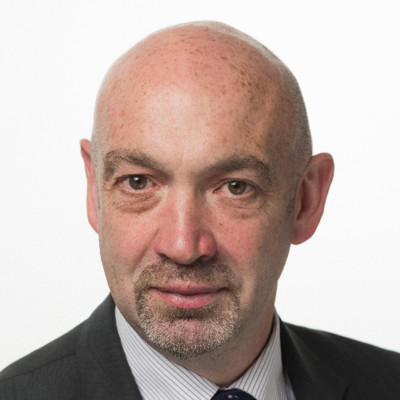SmartHealth catches up with InterSystems’ John Kelly to find out more about how InterSystems is helping to digitally transform health and care in Ireland
The HSE recently announced signing a Framework Agreement with InterSystems for a Clinical Management System for specialised care services. What is a CMS?
A CMS is an electronic information system which provides a comprehensive and unified patient record to facilitate efficient and shared workflows across healthcare services. So, everyone involved in the care of a patient has flexible and on-demand access to an up-todate, secure, legible and intuitive patient health and care record whenever and wherever it is needed. This could include, for example, allergies, test results, care plans, medication records, mobility needs and so on.
What benefits will a CMS provide?
It will deliver safer, more efficient, and better coordinated care thereby creating better experiences for those receiving, using and delivering services. It also delivers a wide range of capabilities to help prevent or mitigate risks common in healthcare. The InterSystems solution chosen by the HSE is called TrakCare. Data entered once, in any part of TrakCare, is immediately available to all authorised users so there is no need to ask patients for the same information over and over.
This sounds really exciting. Where will we be able to see TrakCare in Ireland?
Our teams are already collaborating with colleagues at the National Rehabilitation Hospital in Dun Laoghaire and the new National Forensic Mental Health Services in Portrane to implement TrakCare. The digitisation of legacy processes is always complex.

Intersystem’s John Kelly
How does InterSystems ensure successful implementations?
The implementation process is crucial and encompasses change management, process re-design, configuration, adoption and ongoing optimisation. Over the past 44 years, InterSystems has successfully completed hundreds of implementations across 28 countries and have learned a thing or two in the process. When a customer goes live with our software that is the start of their journey for digital transformation, it’s not the end. Focusing on benefits realisation and making sure customers get maximum value to improve their delivery of care is critical before and after their go-live.
InterSystems is at the heart of the healthcare information ecosystems. What global trends are you seeing that may be relevant to Ireland?
More than one billion health records worldwide are managed with InterSystems technology. We see a similar goal everywhere – to create a smarter, more sustainable health and care system for the future. Across healthcare, access to data is increasing exponentially but, of course, availability is not as important as usefulness. So, to allow value to be extracted from massive volumes of healthcare data, we have created a data platform called IRIS for Health, which underpins TrakCare and gives it many unique capabilities. Other leading healthcare software suppliers such as EPIC have built their solutions on IRIS for Health. We also have several customers that are using IRIS for Health’s predictive analytics capabilities to improve patient outcomes. They are looking at data and outcomes of past patients and programming machine learning algorithms to provide insights such as the likelihood of a discharged patient being readmitted within 30 days or the likelihood of a patient developing chronic diseases.
What advice would you give to those who are contemplating a digital transformation journey?
Digital transformation has been defined as the step change improvement of operations and services using technology. But it must not be treated as an IT project. Digital transformation requires cultural change. All internal and external processes must be aligned to simplify the patient or service user’s journey. Governance and clinical leadership are required to create an organisation and culture supportive of change with a laser focus on the delivery of service improvements.






